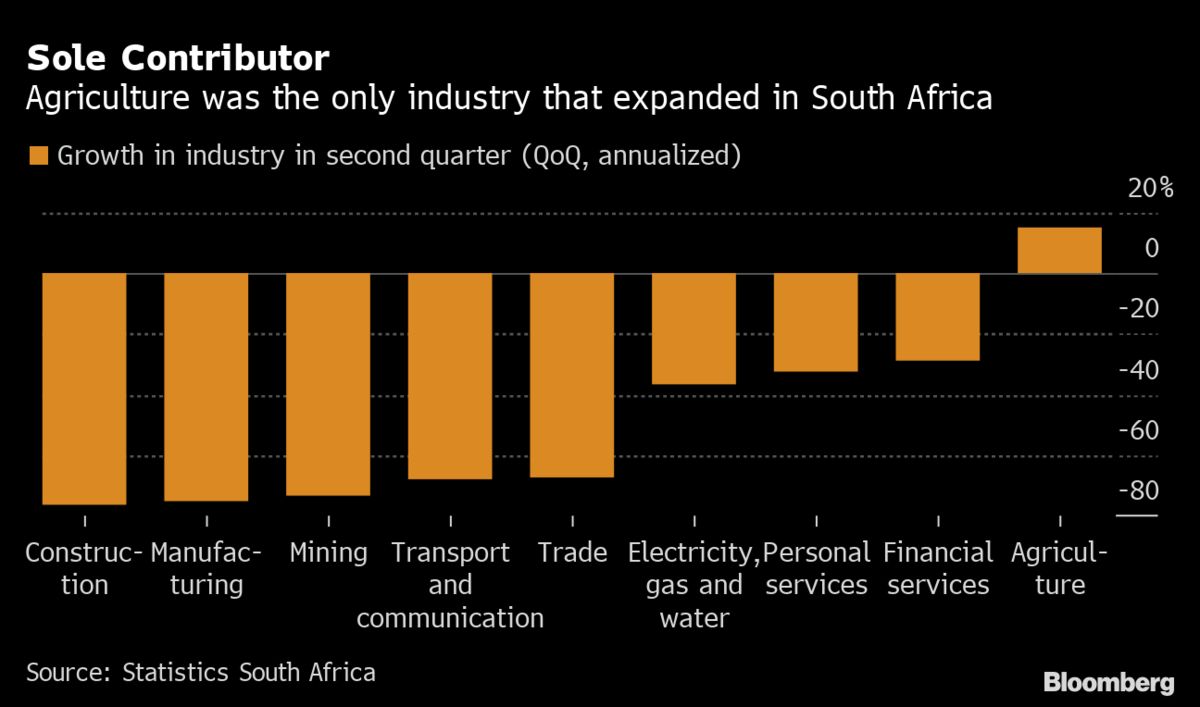One of the biggest lenders to South African farmers can’t take on new clients or meet half the needs of existing customers until it gets another government bailout to keep operating.
The state-owned Land and Agricultural Development Bank has asked the National Treasury for 7 billion rand ($455 million) to ease its cash woes and reduce debt. The Pretoria-based institution resumed interest payments on its borrowings in August after getting 3 billion rand from the government, but isn’t yet able to meet capital repayments.
“The bank does not have enough liquidity to fully finance the sector, it is only able to recycle loan repayments from its clients toward financing requirements of its existing clients — resulting in less than 50% of the existing clients’ requirements being met,” the Land Bank said in an email. “No new client applications are being considered at this time.”
The woes at the lender, which owns almost a third of loans to the agricultural industry, were compounded by persistent droughts over the past five years that curbed the ability of farmers to repay their debt. Commercial banks have since stepped into the void to provide loans to the sector, the only one to expand in the second quarter, when South Africa’s economy shrank an annualized 51% from the previous three months amid the coronavirus fallout. The 108-year-old bank is among a wave of state-owned South African companies seeking support from an already cash-strapped government after years of corruption, mismanagement and above-inflation pay increases hollowed out their finances.
It is seeking a further 1 billion rand a year for the next three years to be able to meet its development-funding goals. As part of the proposal put to the government to secure the funds, the Land Bank aims to improve its access to capital markets, reduce its loan portfolio, solve the default on some of its debt, and sell non-core equity assets, it said.
Creditors in May picked FirstRand Ltd.’s investment-banking unit Rand Merchant Bank as a financial adviser after it missed a loan repayment that triggered a cross-default event under a 50-billion rand bond program.
“The financial and sustainability plan is highly dependent upon the National Treasury approval and support,” the Land Bank said.
